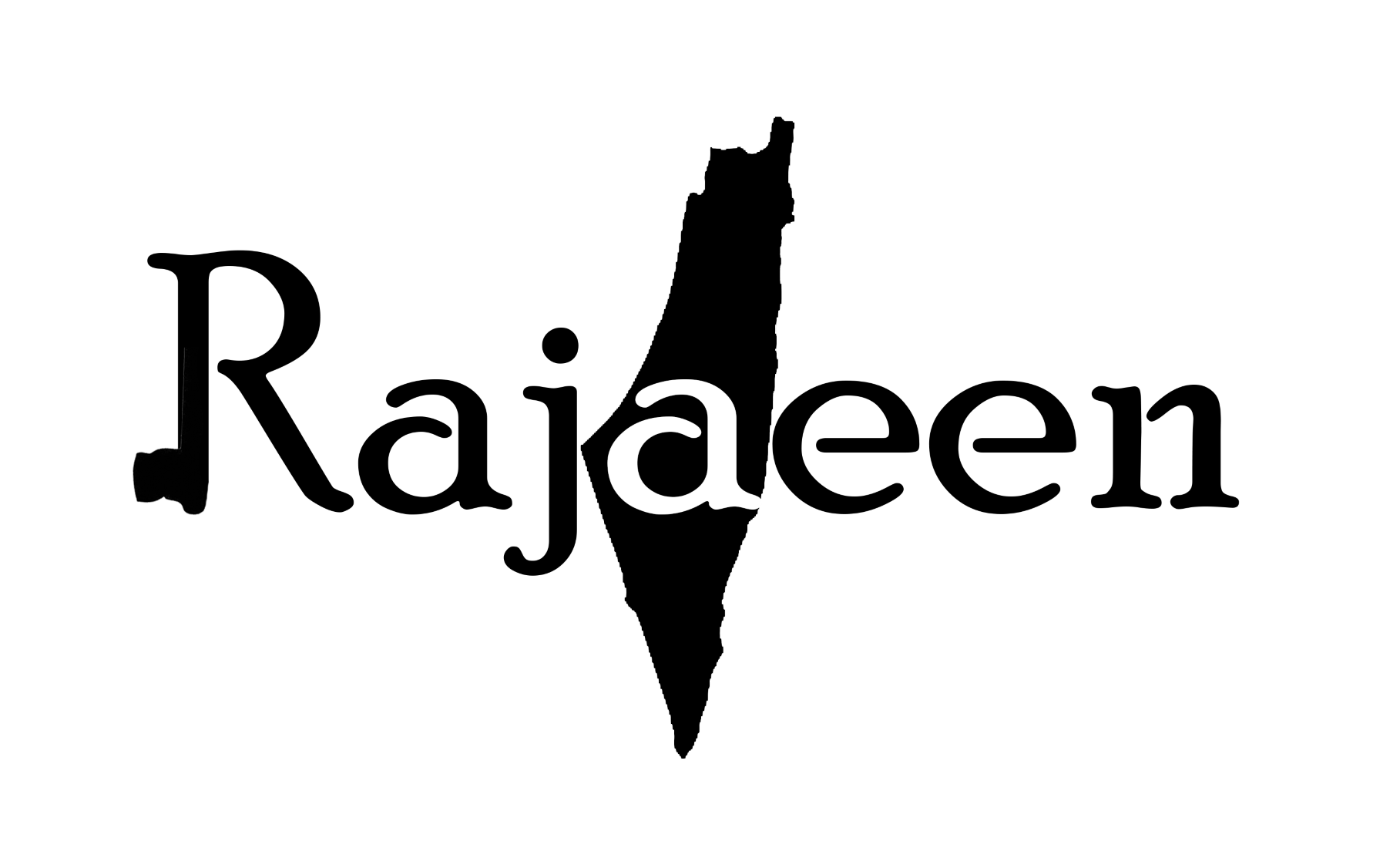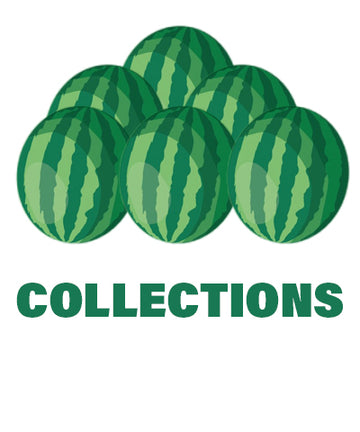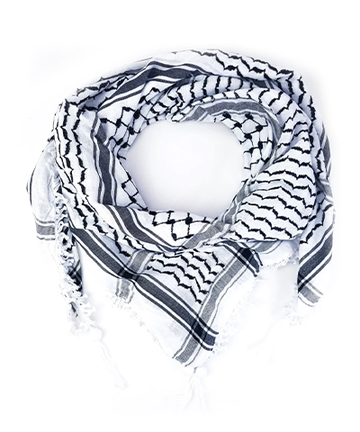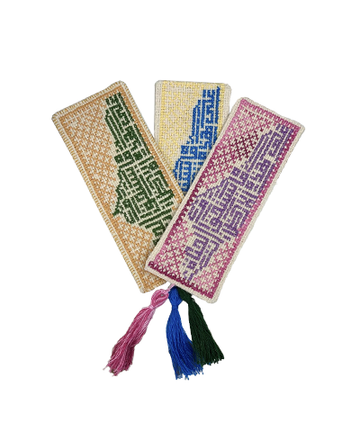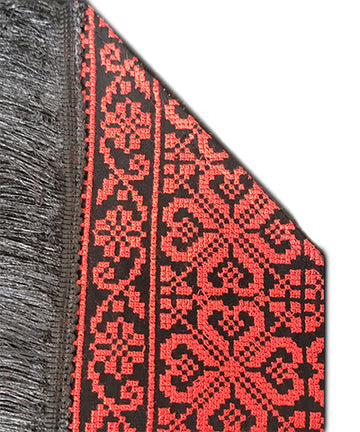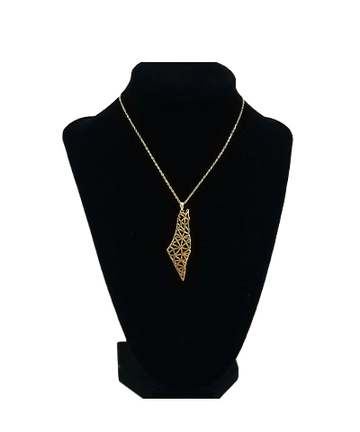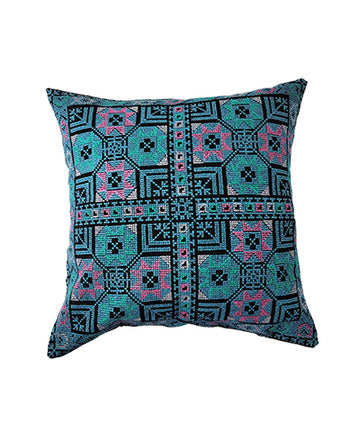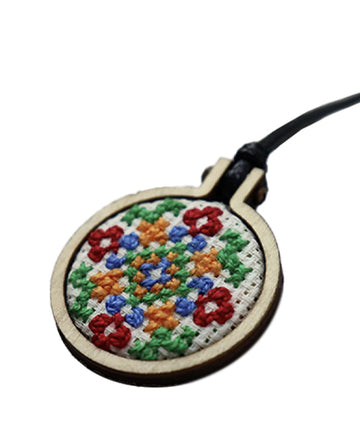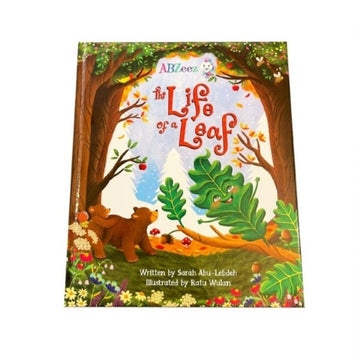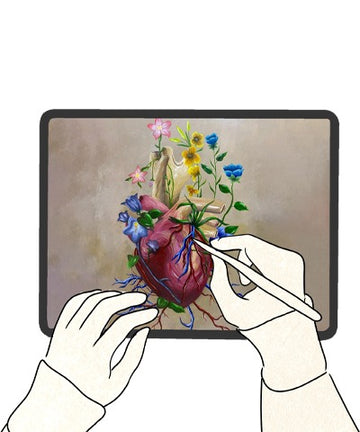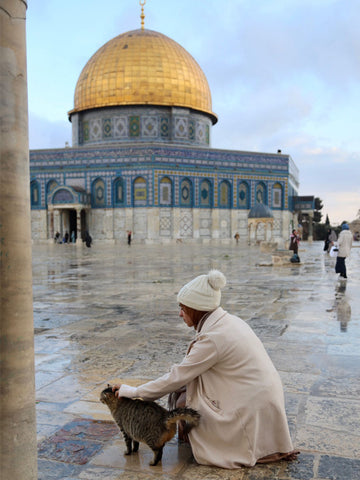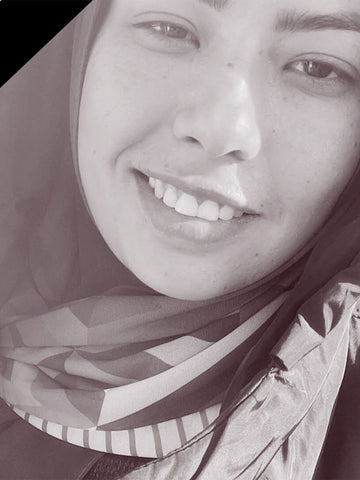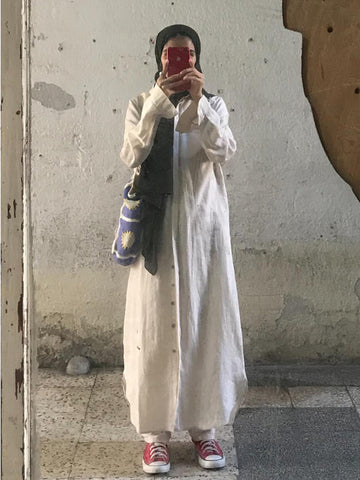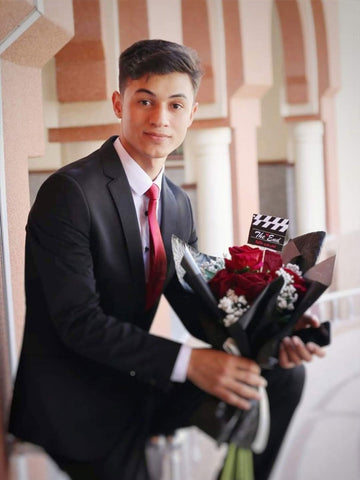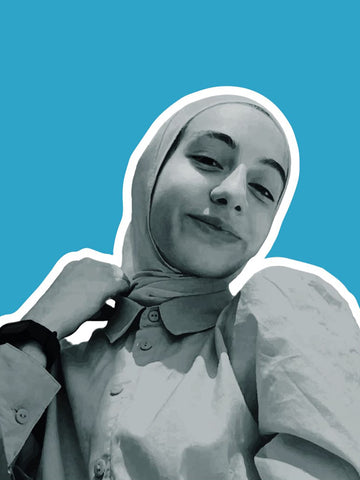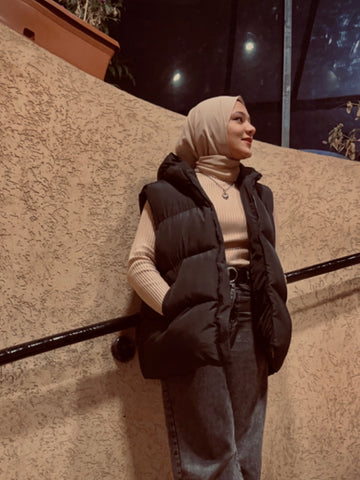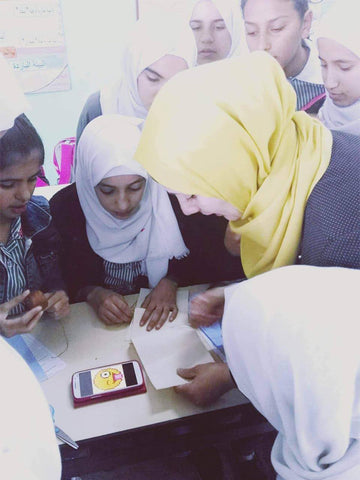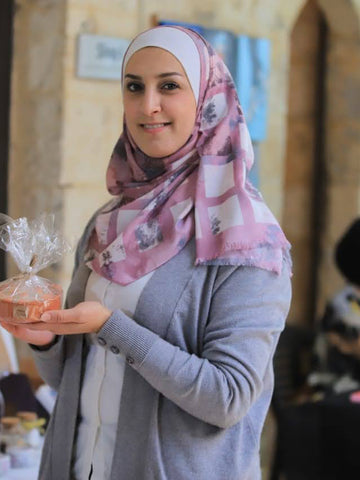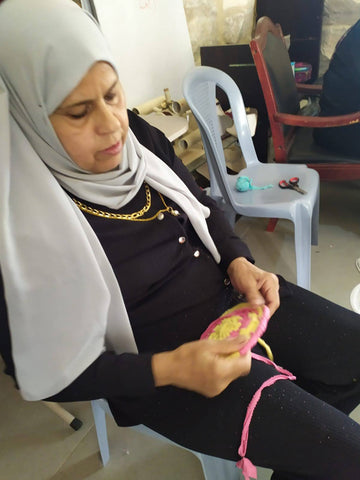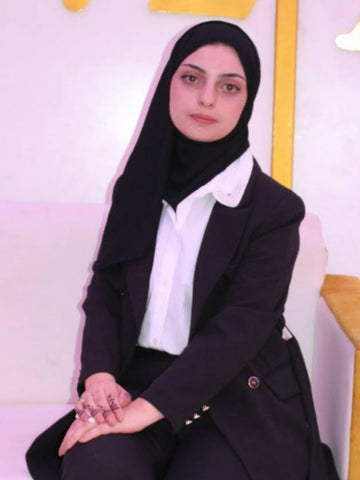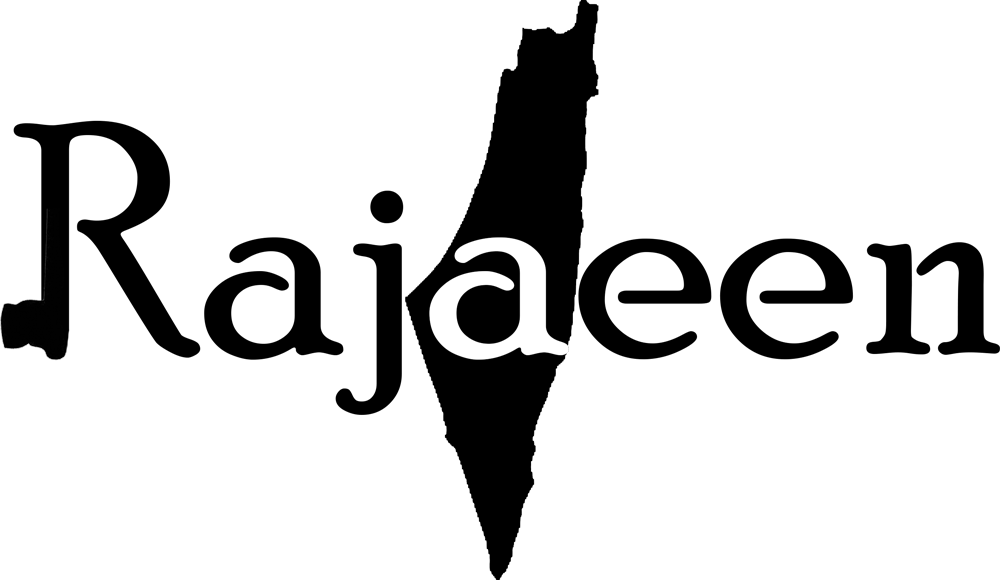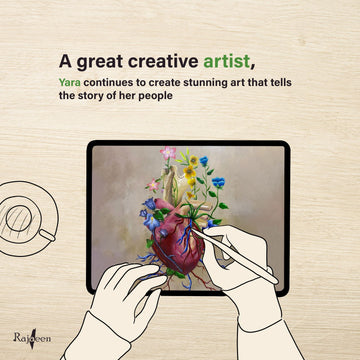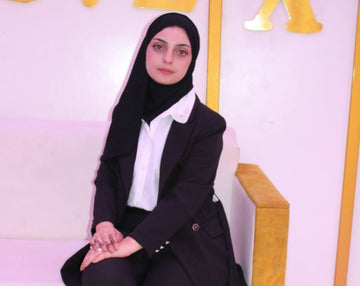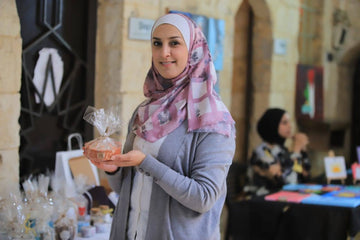The conflict in Palestine continues, with wars occurring from time to time. Each new day brings new victims, continuous displacement, and new refugees. As these numbers increase, our responsibility at Rajaeen to support Palestinians and talk more about the cause grows. During our ongoing search for heroes to tell the story of, we are amazed every day by our determination and resolve to start a new one. From Jaffa and Haifa, Hebron, and Nablus to Jerusalem and the West Bank, a new Palestinian hero emerges daily to tell the world that the struggle continues and resistance continues, this time with the pen and the brush.
Artists in Palestine's Gaza Strip were forced to halt their work due to the war. Similarly, in the West Bank, creatives faced harassment from the occupation and restrictions on artistic work and publication. These are continuous attempts to erase global engagement with the Palestinian cause, specifically the genocide in Gaza. However, the surprising outcome is an unprecedented rise in global awareness of the issue, with more people now understanding who holds the rightful claim to the land. Today, we want to amplify Yara's voice and ensure that her refugee artwork is seen by every person who supports refugees and the Palestinian cause.
Meet Yara Faqeeh, an Affected Digital Artist from Jerusalem
Name: Yara Faqeeh
Job: Palestinian Artist
Roots: Jerusalem
Yara Faqeeh is a 23-year-old Palestinian artist from Jerusalem. She graduated from Birzeit University with a degree in Contemporary Visual Arts. Since her childhood, Yara has been passionate about drawing, arts, and photography. This field aligned perfectly with her hobbies and opened up new opportunities, introducing her to diverse worlds and cultures through different Palestinian art.

Life Under Occupation
Could you describe your life under occupation in Jerusalem?
When we asked Yara about her life under occupation roles as she's living in Jerusalem, dealing with the army every day, she answered: "I find it difficult to summarize my life under occupation. Living in Jerusalem might seem advantageous from the outside—you have access to Al-Aqsa Mosque, which is not allowed for Gazans and other Palestinians, and also move with some freedom between the West Bank and Jerusalem, and there are more job opportunities."
Faqeeh continued: "But on the inside, no one with a blue ID from Jerusalem holds Palestinian citizenship. We are Jordanian and are considered 'refugees in Israel.' Most of us have Jordanian passports and Israeli 'laissez-passer' travel documents, but nothing indicates we are Palestinian. At any moment, they could detain someone and exile them to the West Bank, Gaza, or outside the country, and never to return."
Yara continued her speech by describing how she is not displaced but still a refugee in her roots city; she added about language issues: "Additionally, learning Hebrew is a necessity. If you want a job in your field with a sufficient salary, you need to work for Israelis. Official interactions—whether obtaining an ID or passport, going to a hospital, police station, or university—often require speaking Hebrew, and rarely to find translators available."
Journey
Can you tell us more about your profession and how you started practicing drawing?
Yara Said: "Since I was young, I watched my siblings draw, so I drew like them and learned from them. As they moved on to other things, I continued and developed my skills further, exploring different types and techniques of drawing—pencil, charcoal, oil, acrylic, watercolor, and digital art. I wanted to try everything to express my feelings, the circumstances we face and live."
Faqeeh added: "University opened up even more avenues beyond drawing, such as sculpture, photography, video art, and performance art. I’m still exploring what I want to pursue further."

Impact of Yara's Palestine Artwork on the Community
How did your crafts affect the community before the war?
Yara shared with us how her masterpieces affect around: "My art leaned toward social and political issues in Palestine. I created projects about the separation wall, the sounds of the occupation, and posters about Palestinian women. My work was more conceptual art than traditional crafts. I send messages inspired by our suffering as Palestinians fighting for our Ruturn rights, our land, and our freedom."
Challenges Under Occupation
Can you describe the impact of the war on your life?
"I trained at an office nearby during the first two to three months of the war. With the ongoing War in Gaza and the unstable situation, the army and police were heavily present, and there were many searches and phone checks. I was afraid to go to training, but eventually, I overcame it and resumed my work because it seemed there was no end to this war."
Yara added: "I have social media pages where I share my work—one for drawing, one for photography, and one for a personal project I started a while ago. I stopped posting on them out of respect for the events and limited my participation to keep sharing stories about Gaza."
"At one point, I lost all passion for everything and couldn't draw or produce any art. I thought, Why should I create new visuals? For whom? We're all going to die, so what's the point? It was a dark period, but I eventually got past it and realized that life must go on, and I can fight with my brush and produce art that expresses our case, as one visual art is more powerful than thousands of words."

Challenges During War
What were the biggest challenges you and your family faced during the war?
When we asked Yara about the challenges she faced with her family in Jerusalem due to the ongoing War on Gaza, she mentioned important issues and types of residents that many nationalities participate in: "One of the biggest challenges was the boycott. In Jerusalem, Arab products are scarce, especially in commercial stores where 80% are Israeli and supportive products, and only 20% are Arab products. I was very supportive of the boycott and struggled initially to find alternatives. I would go to three or four stores to find a locally produced item, like a jar of pickles."
Faqeeh added about the boycott: "I would speak with shop owners, asking them to stock more Arab and local products and argue with family and friends about the importance of the boycott. Eventually, more stores began to carry Arab goods due to increased demand, and even new companies started producing, like Uncle Osaka, a chocolate brand that is even better than Nutella. This led to greater support and encouragement for local products."
Dreams and Plans for the Future
What are your dreams and aspirations for life after the war?
As Yara mentioned, she's from Jerusalem but affected by the Gaza War. Rajaeen's team asked her about her dreams and plans after the war. She answered: "I want to continue content creation and work on developing my pages for drawing and photography. During the war, I bought a camera and experimented a lot with video for my work, and I look forward to sharing them once things settle down."
"I'm currently seizing any opportunity that comes my way and seeing where it leads me. I started taking photography orders, applied to the Rajaeen to share my drawings with the world, and got accepted for a training opportunity in Jerusalem at a marketing institution." Yara said.

Community Support
How has the support from your community or others helped you during this time?
"There was a constant state of mourning and sadness for Gaza; this encouraged us to talk more about the situation and support each other emotionally. We keep telling each other that tomorrow we'll be better, will rebuild Gaza, and tomorrow we'll be free. Imagining ourselves visiting Al-Aqsa whenever we want, and always have a deep faith that tomorrow Palestine will be free, and one day, refugees will return to their homes and use the key."
What message would you like to share with those who may read your story?
Yara said, "I always have a phrase in my head: This too shall pass; the bad times will pass, whether a day, two days, a month, or more. Things won't stay the same forever, so be kind to yourself. The same goes for good times—they will pass, too. Live every moment as it comes, and with God willing, the war will end, and things will get better."As one of the stories from Palestine, Yara's journey is a powerful reminder of the resilience and strength of Palestinian artists living under occupation. Her struggle as a war-affected thriving digital artist in Jerusalem illustrates the harsh realities faced by many. Supporting Yara by purchasing her art pieces, t-shirts, and stickers provides her with an income and keeps the Palestinian cause alive in global consciousness. Every art piece of Palestinian culture sold tells a story of survival and hope.
Let's unite to support Yara and others like her, ensuring their voices are heard, and their talents are recognized. Your support can help rebuild lives, provide hope, and create a brighter future for those affected by conflict. Check the Maker Stories section to learn more about their journeys and how you can make a difference.
